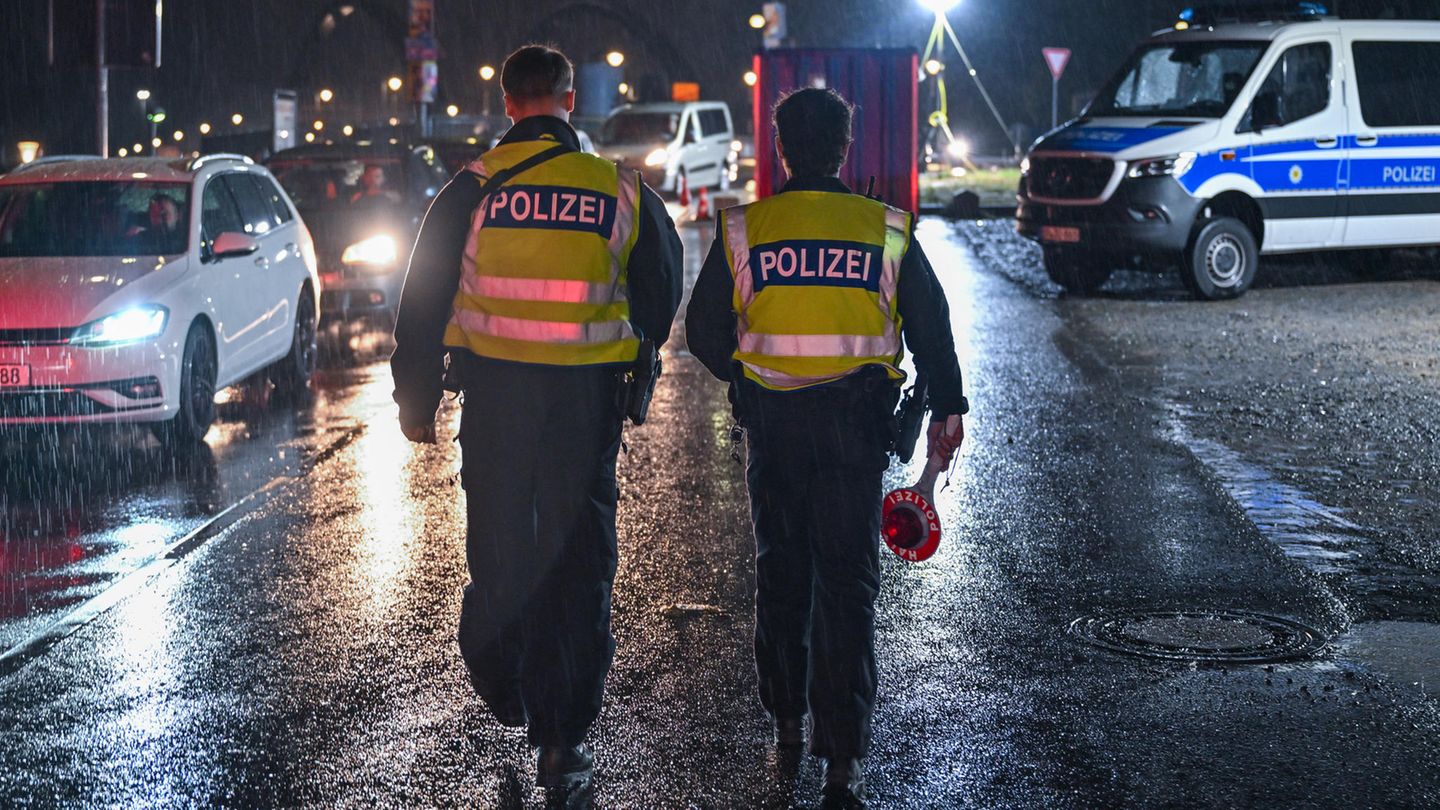Until now, border controls only existed at certain sections. Now travelers and commuters must expect checkpoints at all German land borders. What you should know.
It is intended to curb unwanted migration and crime: Since last night, travelers, commuters and freight forwarders have had to prepare for border controls at all German land borders. As before, these will be random checks. This means that not every traveler will be checked, but everyone must expect it.
How should we imagine border controls in concrete terms?
According to the Federal Ministry of the Interior, controls should be flexible in terms of space and time. Special traffic control systems are conceivable on busy high-speed roads. However, the local federal police will be responsible for the specific design.
“In coordination with its partner authorities at home and abroad, the Federal Police will endeavour to ensure that these controls have as little impact as possible on the everyday lives of commuters, on trade and on travel,” assured a spokeswoman. Travellers and commuters are asked to carry an identity document such as an identity card or passport – but this applies to cross-border travel anyway, even without controls at the European internal borders.
How have the borders been controlled so far?
Since October 2023, there have been stationary controls at the borders with Poland, the Czech Republic and Switzerland. These have been extended again and again and currently run until December 15. There have been controls at the German-Austrian land border since September 2015, which are justified by irregular migration. The newly ordered controls directly at the border affect the land borders with France, Denmark, Belgium, the Netherlands and Luxembourg. However, the borders with France have already been controlled since July 20, which the federal government justified with the Olympic Games, among other things.
Are the controls limited in time?
Initially for six months. Controls within the Schengen area, which is actually free of border controls and to which most EU states belong, must be reported to the EU Commission. Germany has done this for the period from Monday to March 15, 2025. The Interior Ministry wants to extend the existing border controls, which are currently scheduled to last until mid-December.
At the end of August, Chancellor Olaf Scholz (SPD) told ZDF that he wanted to keep the controls in place “for as long as possible” – but only referred to the existing controls on Germany’s neighboring countries. These had proven to be “very efficient.” That is why he wanted to “continue the border controls for as long as possible.” “We always have to do this within the framework of European law. But I can assure you that we will succeed.”
How does the federal government justify this measure?
With security risks due to irregular migration and people smuggling at the EU’s external borders, as can be read in the EU Commission. This led to an increased level of irregular border crossings in Germany, which exacerbated the already tense situation in accommodating refugees – especially since Germany has already taken in 1.2 million war refugees from Ukraine, according to the Interior Ministry.
Rejected at the checkpoint in Frankfurt (Oder): “I want to live in Germany”
01:53 min
The ministry recently cited the reasons for the controls now ordered as not only limiting irregular migration but also protecting internal security from current threats posed by Islamist terrorism and cross-border crime.
The ministry believes that the controls so far are already having an effect. “There are a fifth fewer asylum applications than last year, a fifth more returns, more than 30,000 rejections at the German borders due to internal border controls since October 2023,” said a spokeswoman. “More than 1,300 people smugglers were caught at the borders with Poland, the Czech Republic, Austria and Switzerland between October 2023 and the end of July 2024.” However, if people are rejected at the border, it is unclear how many people will later make it to Germany.
What effect have the controls so far had?
The balance is mixed. There is no talk of a collapse in border traffic, but there are disruptions here and there. In Mecklenburg-Western Pomerania, no significant delays at the border crossings to and from Poland due to border controls have been reported. “We have not identified any bottlenecks and do not expect any disruptions in the future,” said the President of the Mecklenburg-Western Pomerania Transport Association, Christian Joerß. The Tourism Association also did not file any complaints.
In Bavaria, where the borders with Austria and the Czech Republic have been controlled for some time, there are repeated traffic jams and long waiting times at the crossings. This affects travelers as well as people who commute across the border for professional or private reasons.
In Baden-Württemberg there are already controls at the border with Switzerland and, since the summer, also with France. Sometimes this affects traffic, such as at the Kehl Europa Bridge, which spans the Rhine to Strasbourg. However, there are no known kilometer-long traffic jams at the borders with Switzerland and France.
There are occasional traffic jams on the Danish side at the three Schleswig-Holstein border crossings to Denmark – but this is due to controls there. This is especially the case when there is a lot of holiday traffic. The border posts on the Danish side are not permanently manned, however.
What does the economy say?
There is a certain amount of concern there. Border controls could lead to annoying delays in the movement of goods and travel, Volker Treier, head of foreign trade at the German Chamber of Industry and Commerce (DIHK), told the news agency Dpa. The experience of the Corona crisis showed how restrictions could put a strain on the economy. “With the aim of curbing irregular migration, politicians should keep in mind that necessary deliveries and cross-border trade should function as smoothly as possible,” demanded Treier. “Likewise, the mobility of cross-border commuters and service providers should not be restricted.”
Regional retail and restaurants near the border are particularly dependent on the free movement of goods and people. “The controls also increase the storage costs of many companies, and just-in-time deliveries become more difficult. All of this is a further burden on the economy in economically difficult times.”
The deputy general manager of the Federation of German Industries (BDI), Holger Lösch, also warned: “Trade and supply chains must not be unnecessarily affected by the controls.” The controls must be flexible, efficient and unbureaucratic, and the impact on trade and commuters must be minimized. “The free cross-border movement of goods and people is crucial for the internationally networked German industry.”
Source: Stern
I have been working in the news industry for over 6 years, first as a reporter and now as an editor. I have covered politics extensively, and my work has appeared in major newspapers and online news outlets around the world. In addition to my writing, I also contribute regularly to 24 Hours World.




